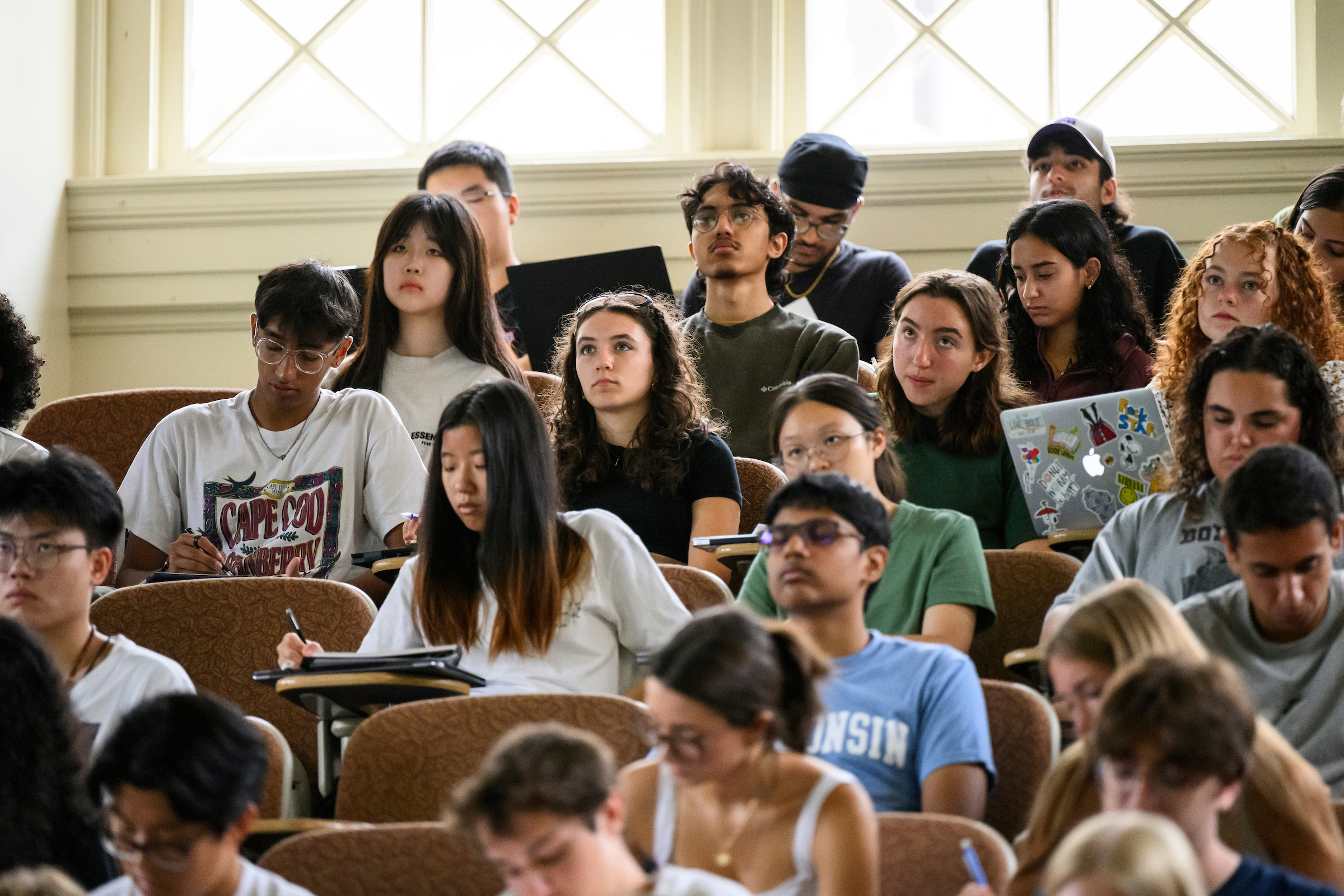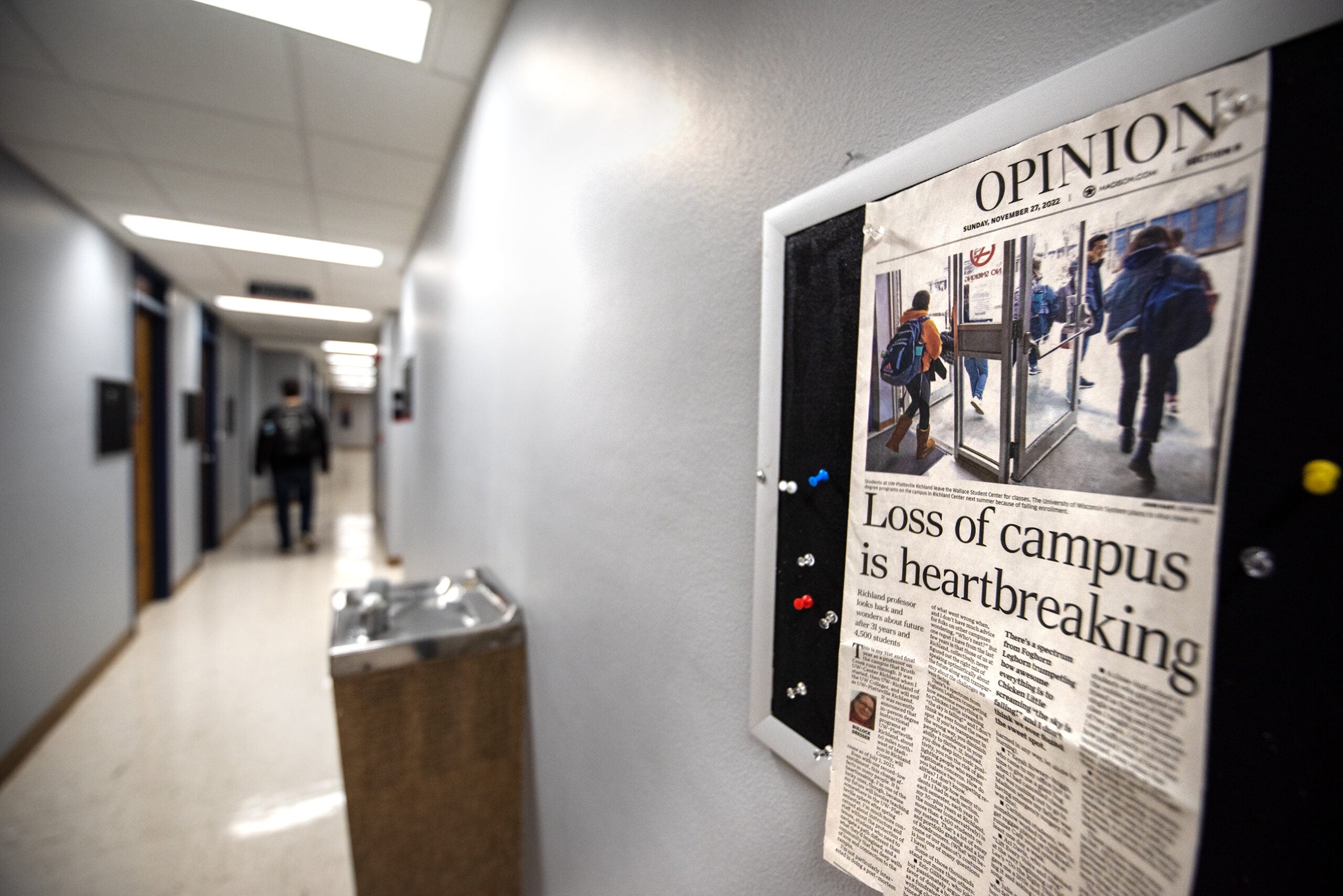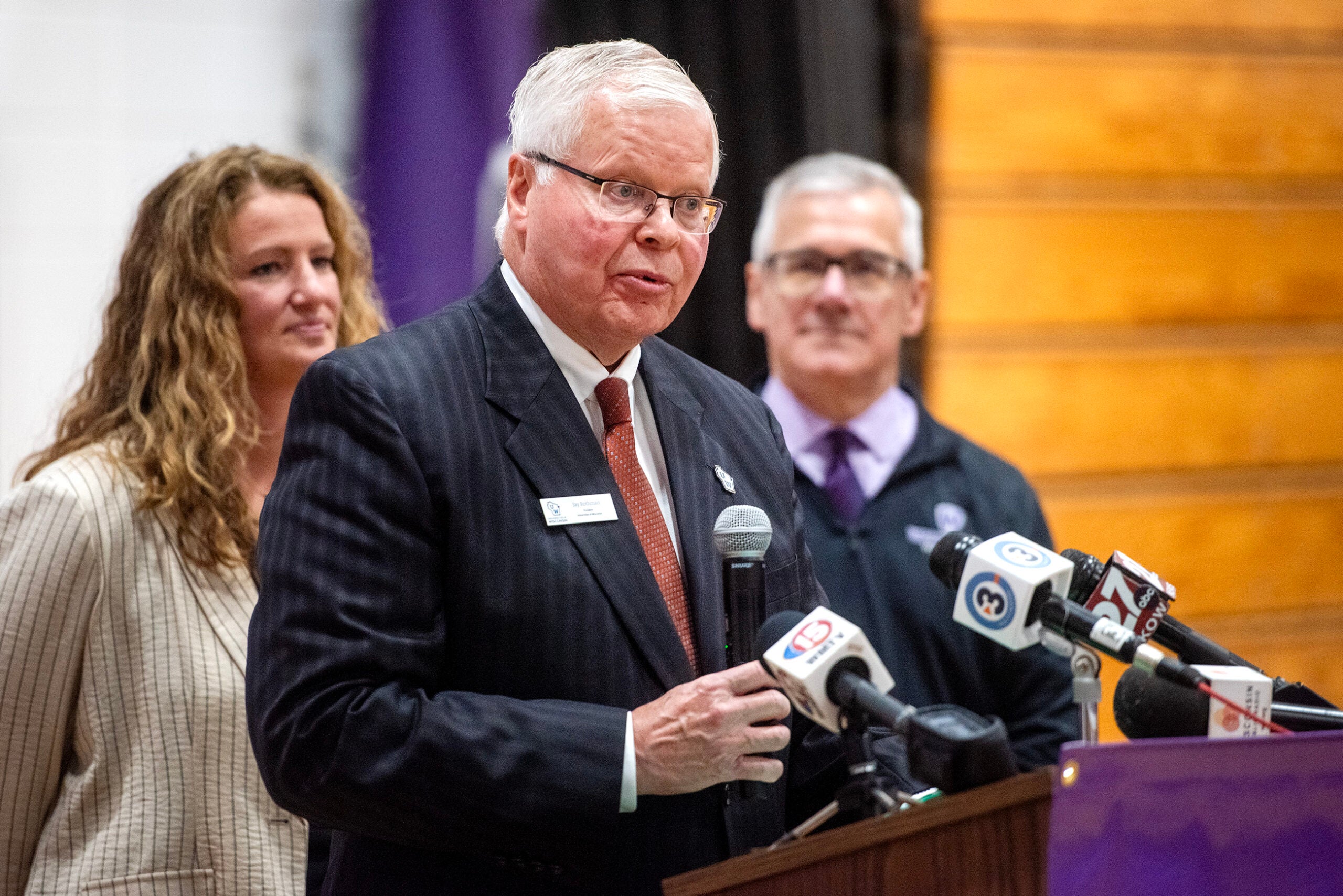Fall enrollment at the Universities of Wisconsin will likely be negatively impacted by the delayed rollout of a federal financial aid form, according to Universities of Wisconsin President Jay Rothman.
At a UW Board of Regents meeting Thursday, Rothman critiqued how the redesigned form delayed universities’ abilities to send out financial aid offers to students.
“It is widely considered to have been an unmitigated disaster,” Rothman said.
News with a little more humanity
WPR’s “Wisconsin Today” newsletter keeps you connected to the state you love without feeling overwhelmed. No paywall. No agenda. No corporate filter.
The Free Application for Federal Student Aid, or FAFSA, determines how much financial aid a student can receive. The form affects scholarships, grants, student loans and work-study opportunities.
The form got a revamp this year, but it was released three months behind schedule with technical problems, some of which have yet to be resolved. Colleges and universities didn’t receive student financial aid information until the middle of March, delaying the distribution of financial aid offers. Some financial aid offices are still playing catch up.
‘It is not going to be positive’
Wisconsin’s FAFSA completion rate has increased over the past several months.
Still, the latest data from the National College Attainment Network shows more than 4,400 fewer Wisconsin seniors have completed the form compared to last academic year. That’s a decrease of nearly 14 percent.
FAFSA completion rates fell more among schools with a greater share of students of color, English Learners and economically disadvantaged students, according to the Wisconsin Policy Forum.
“The ramifications of this are potentially significant. This is not just a delay. This could make the difference between whether or not somebody who ultimately goes to school or doesn’t,” Rothman said.
Rothman said the exact consequences on fall enrollment are unclear.
“One thing is certain, it is not going to be positive,” Rothman said.

MorraLee Keller, senior director of strategic programming at the National College Attainment Network, echoed Rothman’s concerns in an earlier interview with WPR.
Keller said if a student completes a FAFSA, it’s a strong indicator they will attend college. She said it is “probably pretty likely” that enrollment declines for the upcoming school year will be sharper than ones due to the COVID-19 pandemic.
Rothman said the long-term consequences for students, their families and the workforce are “impossible to calculate.”
About 60 percent of students currently attending the Univerisites of Wisconsin receive financial aid. In the 2022-23 school year, those students received nearly $1.4 billion in assistance.
Civil dialogue is priority after pro-Palestinian encampments
The Regents meeting was at the University of Wisconsin-Milwaukee. There, Rothman talked about the system’s response to pro-Palestinian encampments at universities across the system. He said the universities are committed to upholding free speech rights as well as the law.
“It is often a balancing act that requires vigilance, patience and respect,” Rothman said.
He said the rights of students to express themselves freely is not the primary issue, but rather ensuring the presence of civil dialogue. To that end, all incoming first-year students will receive more education on freedom of expression and the rights and responsibility associate with the First Amendment, Rothman said.
“Universities have to be marketplaces of ideas, where students are exposed to various ideas and perspectives that will help them improve their ability to think critically and creatively,” Rothman said.
Earlier in the day Thursday, seven Pro-Palestinian protesters were arrested and cited with disorderly conduct after disrupting a Regents committee meeting, according to a UW-Milwaukee spokesperson.
Wisconsin Public Radio, © Copyright 2025, Board of Regents of the University of Wisconsin System and Wisconsin Educational Communications Board.






